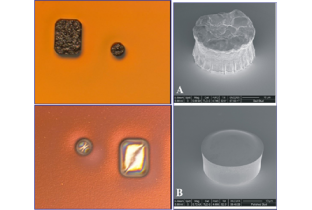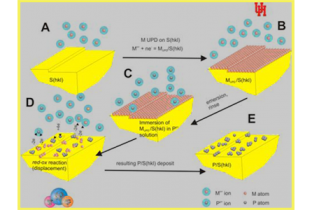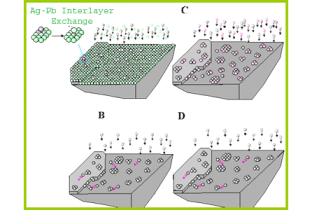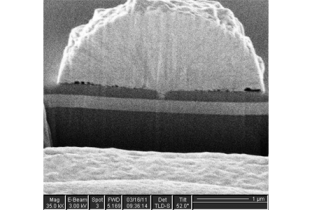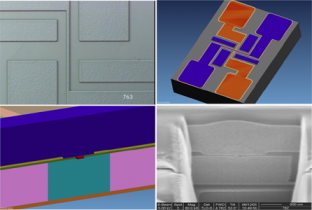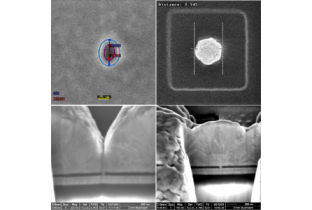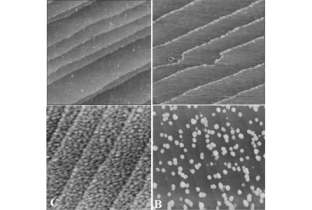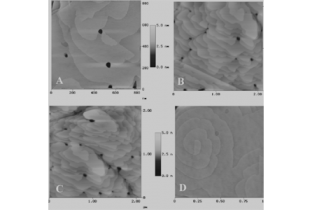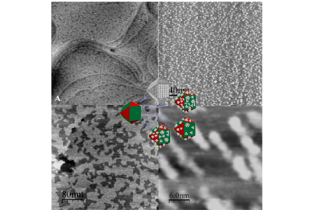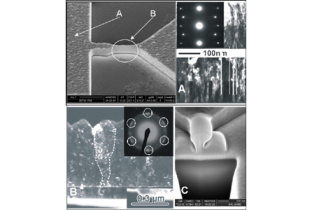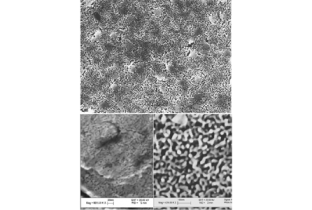The research interests of our group are directed towards better understanding of the physical and chemical processes occurring at the electrochemical interface and their use to produce the materials and nanostructures with novel functionality and application. The multidisciplinary nature of our research involves areas of Electrocatalysis, Sensors, Electrochemical Materials Science and Nanofabrication, Corrosion and Thin Films. Our goal is to develop a vibrant and diverse research and educational program at University of Houston which will have a long term sustainability and international recognition. The synopses of the current research interests of our group are described in the proceeding text, however, the future plans for the research development include related areas of bio-mineralization and bio-inspired surfaces.
Electrocatalysis: The research in this area explores the fundamental advantages and limitations of the monolayer catalyst concept for design of highly active fuel cell anodes/cathodes. Our interest is centered to develop a better understanding of the effects of substrate (electronic effect and epitaxial strain) and the monolayer morphology on catalyst monolayer activity. The evaluation of these effects in different electrochemical reactions is one of the primary goals.Thebroader interest is to address the stability of monolayer catalystsand to identify the fundamental processes that are important for the catalyst monolayer morphology change, redistribution and longevity in particular electrochemical reactions.
Sensors: The research in this area is focused on electrochemical interface as the natural transducer for sensing of different phenomena including, organic adsorption, DNA, protein sensing, gene recognition, bio-separation etc….The current efforts that are pursued in our group are the work on ultrasound sensor design using the high surface/volume ratio electrodes as the ultrasound transducers and the studies of phase separated magnetic/nonmagnetic nano-materials as the magnetic field sensors.
Electrochemical Material Science and Nanofabrication: The research interests in this area include the studies of different processes occurring at the electrochemical interface like organic adsorption, de-alloying, deposition, etching, oxidation, electropolishing etc..in order to form organized hetero-epitaxial metal and oxide nanostructures, functional surfaces, and materials with different properties and applications. The current work in this area pursed in our group involves the studies of organic phase and hydroxide incorporation into magnetic matrix during electrodeposition process and its effects on deposit morphology, corrosion properties, magnetic properties and stress evolution. In addition, the current work in our group is focused on studying and modeling the surface morphology evolution during electropolishing, studies of nucleation and growth of 2D monolayers using surface limited red-ox displacement reaction and self organization and nano-structuring of 2D deposits.
Corrosion: The current studies in this area are focused on evaluating the effects of additive incorporation on corrosion properties of electrodeposited magnetic alloys. The corrosion of binary alloys is also an active topic of research in our group as a part of the general approach to design functional nano-materials for sensor applications.


